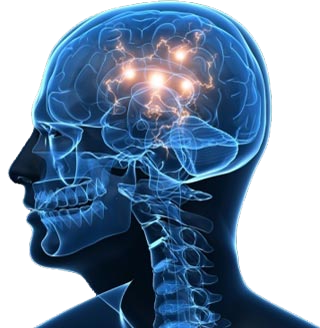
Matcha Green Tea Preserves Memory
Modern science, ancient tea. They’re coming together today in ways worth paying attention to.
Whether you’re over 50, concerned about your brain health, or related to somebody who is, new science shows green tea may hold the secret to a longer more cerebrally satisfying life.
Most tea enthusiasts know matcha green tea is good for you. What they may not know is that certain unique compounds in green tea may also prevent — or even reverse — the effects of Alzheimer’s and other dementia-related diseases.
Researchers have long suspected the buildup of toxic proteins known as amyloid plaque is at least partly responsible for the pronounced cognitive decline experienced by one-in-three North American seniors today.
Now they’ve discovered green tea may help prevent amyloid plaque from developing in the first place. It can also break down existing plaque and help build important new brain cells known as neurons. In fact, clinical tests show drinking green tea can reduce the risk of developing dementia-like symptoms by up to 54 percent. Using advanced imaging technology, scientists have also demonstrated that green tea elevates brain activity in the regions directly associated with functioning memory.
The likelihood that contemporary science may be on the threshold of an amazing breakthrough is due, in large part, to the powerful matcha green tea catechin known as epigallocatechin-3-gallate or EGCG. Matcha’s EGCG is one of nature’s most potent neuroprotective compounds as well as the most abundant polyphenol found in green tea leaves.
Matcha: The Greenest Green Tea
Matcha is a rich, high-quality, vibrant green tea grown and processed traditionally in Japan. One study suggests matcha contains 3 times more EGCG content than the largest “literature value” of other regular green teas. This is likely due to the fact matcha contains the entire tea leaf in powdered form, not just water infused through a tea bag or strainer.
Overall, studies show that green tea catechins can produce dramatic neuroprotective results in models of both Alzheimer’s and Parkinson’s diseases. In mammals, EGCG has been shown to reduce cognitive impairment along with what scientists call neurodegeneration. It can scavenge oxygen-free radicals and reduce the inflammation common to many age-related afflictions.
The production of new brain neurons, or neurogenesis, is critical to brain function as we age and may serve as a new treatment strategy for a variety of dementia related disorders. Scientists have discovered that EGCG boosts the production of progenitors that transform into various types of neural cells.
Human vs. Animal Test Results
Lab tests on mice show EGCG elevates brain function by improving both object recognition and spatial memory. Remarkably, animal tests also show EGCG promotes new neurons in the same part of the brain where neurons die due to the onset of Alzheimer’s disease.
Could the same amazing results be demonstrated in humans? Four months of data collected from more than 1,000 Japanese volunteers aged 70 or more say yes! The Japanese data showed drinking multiple cups of green tea per day reduced the odds of cognitive impairment by 54% (about the same as drinking one cup, ie one gram, of high quality matcha powder).
Another study using neuroimaging to test healthy young adults showed EGCG significantly boost the level of activity in an area of the brain used to store information as well as to perform complex cognitive tasks like language and learning.
Read the full annotated version of this article by Michael Downey here.
Shop your favorite My Matcha Life® matcha today! Shop Matcha Tea.